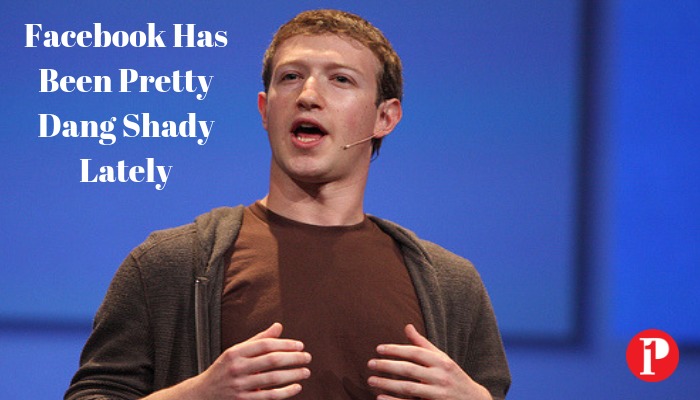
Has Facebook peaked?
Has mass social media production peaked?
Mass production helped make social media the darling of digital marketing departments. Some even predicted that social media’s scalability, relatively low cost, vast reach and micro-targeting abilities would cause it to overtake or even replace other channels, such as search engine optimization (SEO).
What do I mean by “mass production?” I’m including any method of publishing, sharing or engaging with social media content that occurs at a mass scale, including social media automation.
Facebook has been pretty dang shady lately.
Though the company is being held accountable for its part in a slew of unflattering controversies, the tendency is to forgive and forget. As a means to that end, Facebook’s PR team has been busy concocting the equivalent of please-forgive-me-I-won’t-cheat-anymore napkin poetry.
Facebook Now Ranks How Trustworthy You Are
Facebook has started evaluating the trustworthiness of its users by assigning them with reputation scores from zero to one when they report news articles as being false.
If a Facebook user routinely accurately flags false news, that person’s score improves. Other signals are used to evaluate users when they flag articles as false, but Facebook won’t say what they are because it does not want people to game the system.
“Big Brother is Watching You.”
― George Orwell, 1984
Facebook is the least-trusted major tech company
56 percent of Americans trust Facebook the least out of any major tech company.
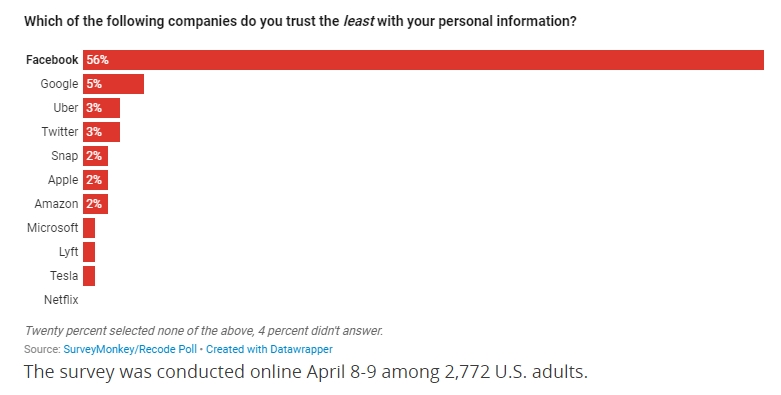
With our various social feeds monopolized by ongoing controversies, Facebook-related or otherwise, I wonder if the threat of social media fatigue is on the cusp of fruition.
Americans are changing their relationship with Facebook
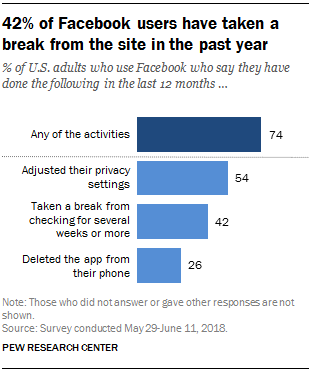
Just over half of Facebook users ages 18 and older (54%) say they have adjusted their privacy settings in the past 12 months, according to a new Pew Research Center survey. Around four-in-ten (42%) say they have taken a break from checking the platform for a period of several weeks or more, while around a quarter (26%) say they have deleted the Facebook app from their cellphone. All told, some 74% of Facebook users say they have taken at least one of these three actions in the past year.
Facebook has separately faced scrutiny from conservative lawmakers and pundits over allegations that it suppresses conservative voices. The Center found that the vast majority of Republicans think that social platforms in general censor political speech they find objectionable. Despite these concerns, the poll found that nearly identical shares of Democrats and Republicans (including political independents who lean toward either party) use Facebook. Republicans are no more likely than Democrats to have taken a break from Facebook or deleted the app from their phone in the past year.
SOCIAL MEDIA FATIGUE
Is defined by the inclination to withdraw from digital interaction, due to overexposure. Information-heavy interfaces, which were once novel, are commonplace for social sites, rendering our attention spans overwhelmed. Hyperbole aside, the attention span of the average human can be compared to that of a goldfish. This fact is not lost on users.
A recent survey conducted by Origin revealed that more than half of users, aged 18 to 24, felt the need for respite from social media, and 34 per cent reported deleting social accounts entirely.
2018 social media research is teaching us at least one thing: This may be the year that social media changed forever.
Edison Research and Triton Digital uncovered a trove of statistically significant social media usage irregularities that may herald a dramatic shift in how and why Americans use social media (or don’t).
The Infinite Dial 2018 report continues the annual research series that consistently produces important findings that describe how we use social media, podcasts, and online audio services.
THE JOY RIDE IS OVER
Over the past eight months or so, the social media marketing world experienced a series of shocks and wake-up calls. Documented in this post titled Social media in 2018: Time to grow up or get out, here’s a quick review of some of the tremors:
- Facebook radically altered its news feed algorithm to further limit brand content and also cracked down on news content veracity.
- Twitter severely limited mass automation for posting, engaging and following and eliminated hundreds of thousands of fake and bot accounts.
- BuzzSumo documented that social sharing overall has been in a long and steady decline.
- Increasing numbers of users are turning to “dark social,” sharing only on private messaging apps or other means not visible to marketers.
- Privacy concerns are causing both users and governments to limit or eliminate user tracking data.
- Influencer scandals have made their use (at least at the celebrity influencer level) less attractive.
- Ad blocker installation and use continue to grow.
All these trends and more added up to a clear message: The era of mass automated social media production is coming to a close.
FACEBOOK USAGE IS DOWN OVERALL
Facebook is the biggest contributor to the overall decrease in social media usage. Last year, more than two-thirds of all Americans said they use Facebook. This year, usage dropped from 67 percent to 62 percent, the first decline in Facebook’s history.
Perhaps the constant arguing (about politics, mostly) on Facebook is making it a less joyful experience and chasing people off of the platform. I don’t think that’s the only reason for the decline, but it’s certainly part of it.
Facebook Usage Is WAY Down Among Young People
Facebook’s demise as a hangout for young Americans has been long rumored, but the math finally supports the premise.
Among 12 to 34 year-olds, Facebook usage declined a staggering 15 percent in one year. Usage is still high, at 67 percent of young Americans, but such a precipitous decline does not bode well for the future of the platform.
CONTENT FATIGUE
It’s human nature to overdue something that is new and shiny. Once we marketers discover a good thing, we’re eager to do way too much of it.
We were told content is king, then quality content is king and queen. Users are in information overload, they have only so much time each day to skim and absorb information.
Mass production of social media proliferated with automation.
It was inevitable that content inflation would lead to reduced audience attention, but in the heady days of free mass social media distribution, no one wanted to hear that.
PHOTO-DRIVEN SOCIAL MEDIA
Every social platform features a lot of photos. But only three are almost entirely photo or video dependent: Instagram, Pinterest, and Snapchat.
Among the top six social media destinations, only those three saw an increase in usage in the past year, with Instagram moving from 34 percent to 36 percent, Pinterest moving from 30 percent to 31 percent, and Snapchat moving from 29 percent to 31 percent.
The more text and opinion-oriented platforms (Facebook, Linkedin, Twitter) were either flat or experienced a decline in usage.
In a complex and conflicted world, the relative escapism offered by thumbing through photos on Instagram, or creating the ultimate wish list on Pinterest, may be a welcome respite from the snark of Twitter or the sales pitches on LinkedIn.
FINAL THOUGHTS
People go to social media to be entertained and distracted, to catch up on relationships and sometimes to be informed. Commercial content on social media was degrading that experience, and actually leaving users depressed. Depressed, unhappy users will use the platform less, or even cease using it altogether.
So we shouldn’t be surprised the social networks are taking steps that resemble what Google did years ago, cracking down on the kind of content and practices that threaten their business goals of more people spending more time on their platforms.
Is regulation coming to social media?
About Blair

Blair Evan Ball is a Social Media Coach and founder of Prepare1, a company that works with businesses, individuals and non-profits. He is a former executive with a Fortune 50 company, and his national division did $1Billion+ in sales annually.
Blair has written three e-books: Facebook for Business Made Easy, Facebook Pages for Business Made Easy, and WordPress Blog Setup Made Easy.
Blair also educates, trains entrepreneurs and business professionals how to amplify their brand, increase revenues, and raise more funds.
![[Study] How Will Businesses Change Their Social Media Activities 5 Golden Rules for Sharing on Social Media](https://www.prepare1.com/wp-content/uploads/2014/03/COACH-logohat-162x300.jpg) The Race is ON! | PREPARE | Get into the Game and WIN!
The Race is ON! | PREPARE | Get into the Game and WIN!
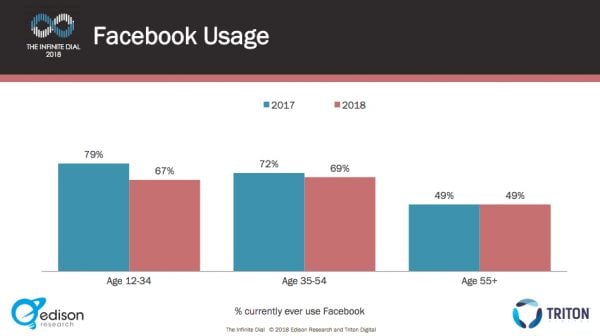
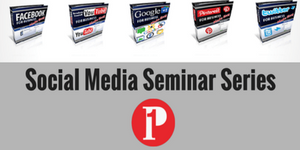




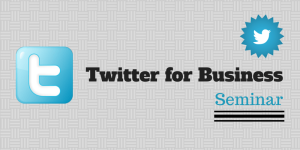
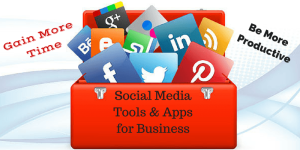
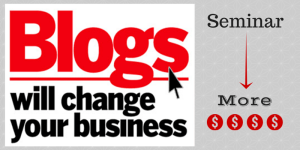


Comments on this entry are closed.